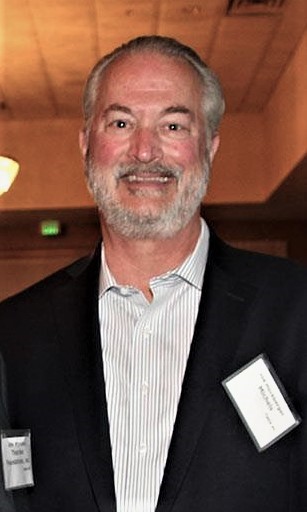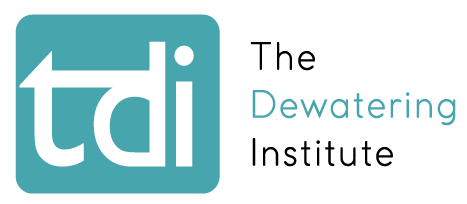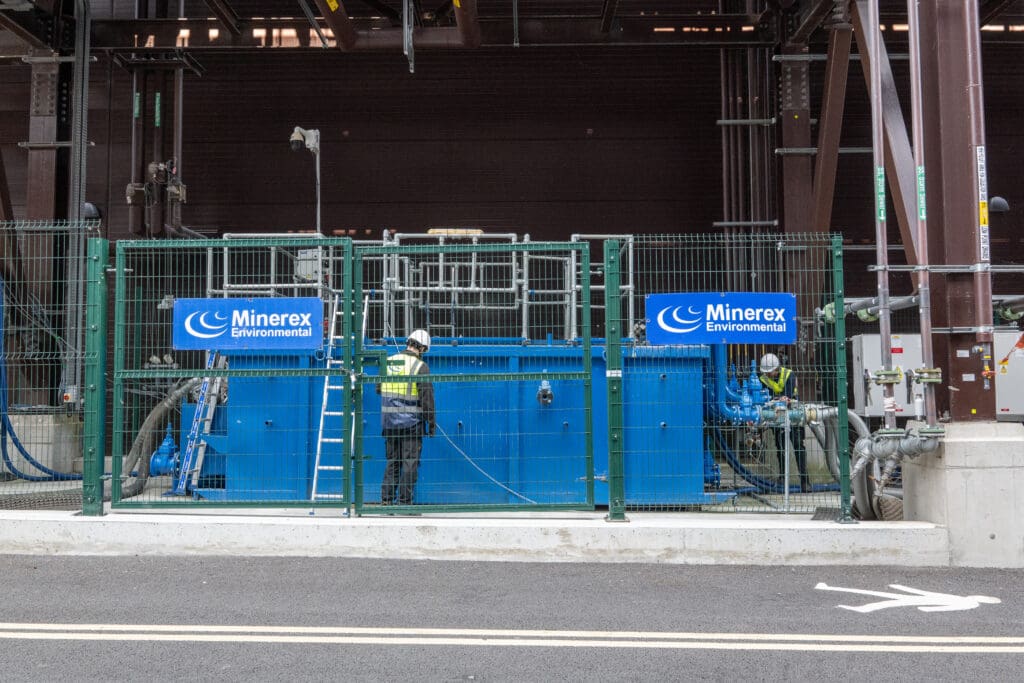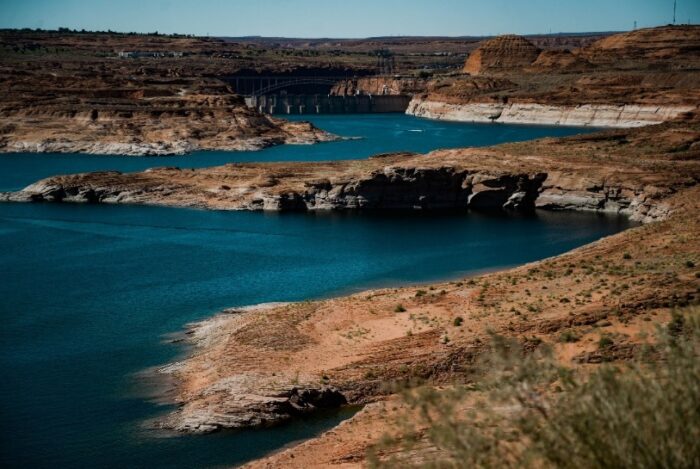As part of the The Dewatering Institute‘s commitment towards knowledge sharing, TDI is developing a series of monthly interviews of industry leaders and professionals from different parts of the world. This months edition features Joe Hockberger from Equix Inc.
Joe Hockberger is the Senior Manager of Geotechnical Services at Equix Infrastructure, Inc. Joe has a rich history in the field of dewatering. One could say that Joe was literally raised on dewatering projects and has seen many changes in the dewatering industry over the years.
“Having companies like Equix Inc. and people with significant experience such as Joe as part of TDI bring with it great learning opportunities for our members. Experienced people like Joe bring in the art to the science of dewatering” says TDI Executive Advisory Council member Chris Botha.
Can you tell us more about your work history and how you go where you are today?
My interest in dewatering began around age 5, when I accompanied my father to work on Saturday mornings. He was the Vice President and Midwest Regional Manager of Griffin Wellpoint Corporation (later renamed Griffin Dewatering) and he spent Saturday mornings catching up on paperwork. I would sit at his drafting table and look out his window at pumps, which I tried to draw with crayons. During summers of my high school and college years, I worked in the Griffin yard, learning about and working on all of the equipment. Conversations with long-time workers gave me a perspective of the business that could not be acquired in the office.
After graduating from college (1975), I spent a year and a half learning the engineering, sales and management side of the business from my father and his staff. Eight years (1983) into my employment at Griffin, the Griffin family sold the business and the new owners decided to go with a youth movement. My father was “retired” and I was promoted to take his place. Over the next nine years, my employees and I built the business from under a million in sales to almost seven million. In late 1992, while I was one of two Vice Presidents at Griffin, the owner (a New York lawyer) decided to take the company in a different direction and I left to start my own company.
Midwest Dewatering Company, Inc. worked its way through thirteen years of a rough economy in the Midwest, as steel mills and oil refineries slowly reduced in size and business opportunities. In 2006, I sold the assets of Midwest to a growing Michigan dewatering company (Mersino Drilling) that had subcontracted drilling services to Midwest for several years. That relationship brought new and greater opportunities for both my self and Mersino. In 2014, I decided to reduce the amount of my travel (that had grown with the Mersino’s) and left to start a dewatering division for Michels Pipeline Corporation. Michels is the premier pipeline contractor in North America and I felt their volume of business would warrant an internal group that could perform dewatering and save them the subcontractor mark-ups.
After seven years of building that division into a viable and profitable operation, I left to start-up another operation for my current employer (Equix Infrastructure, Inc.). Today, my staff and I are venturing into more than just dewatering. Our combined 100+ years of civil construction experience has us pursuing groundwater-related opportunities in dam and levee work, ground improvement technologies, as well as, both geotechnical and hydro-geotechnical solutions for numerous industries across North America.

Having worked for numerous companies, starting up companies and divisions for companies in the dewatering industry, how have you seen the dewatering industry change over the years?
When my career began, in the 1970’s, there were three prominent dewatering firms in the US; Griffin Wellpoint, Moretrench American and Stang Hydronics. These companies were primarily rental and sales firms, but all three had contracting divisions. As the 1980’s rolled around, the contracting business began to increase, as general contractors saw a benefit in sharing the risk that came with dewatering system design.
As contracting increased, experienced personnel became more available and they started “peeling-off” the Big 3 and starting new regionalized firms. Stang ceased its business operations and sold assets to Griffin, which created a number of smaller companies started by ex Stang employees.
Along with these companies, numerous “Mom and Pop” firms slowly but surely began to grow and the 1990’s saw a number of these firms establishing themselves as permanent fixtures in the industry. During the late 1990’s and early 2000’s, several of the larger pump rental firms began to rapidly expand their influence from regional to national.
This new abundant availability of rental equipment and the tight margins that engulfed the construction market encouraged contractors across the country to perform their own dewatering. Over the last 20 or so years, the North American dewatering industry has evolved into a handful of large dewatering firms, a great number of Mom and Pop’s and a lot of contractors trying their hand at an art they should probably have left to the experts.
What is the biggest challenge you’ve seen in the dewatering industry today and in the future?
Besides the obvious – a lack of qualified, dedicated, career-oriented people – I see an unfortunate trend in a lack of training. Too many of the firms mentioned above are not giving proper attention to useful training. From what I have witnessed, there is more training in sales techniques than learning about the means and methods of dewatering. The need for increasing revenues has driven an attitude of “get the work and we’ll figure out how to build it later”.
That attitude has lowered the bar for quality performance on too many projects and I can only hope that the next generation of dewatering professionals spend the time to learn the means and methods first. Sales will come much easier when you have a portfolio of successful projects under your belt.
What/where has been your favourite project so far and why?
The Smithland Hydroelectric Plant, on the Ohio River, near Paducah, KY. This was a design-build dewatering effort that took a great deal of effort to convince the owner, general contractor and several Federal agencies to accept.
The project consisted of building a new hydroelectric plant, in an excavation 90’ deep, alongside the Ohio River. The project engineer designed a slurry wall around the excavation to minimize groundwater influence from the river and the surrounding granular subsurface conditions, but the underlying rock formation was karstic. Not knowing if the slurry wall would actually seal into this rock formation or whether the voids below would channel the river water under it and into the excavation, I had to design a system that would mitigate any of these risks.
I decide to design the system to handle lowering of the groundwater as if there was no slurry wall at all. This might seem like a no-brainer, but the project engineer was convinced the slurry wall would perform as expected and substantially reduce the flow into the excavation. My task was to convince the owner and the other stakeholders that such risks were too great and that they needed to minimize these risks with a more robust system.
My two-tiered well system was designed for 78,000 GPM, based on a river level within one foot of the top of the surrounding levee. Ultimately, the slurry wall was fairly successful and the karstic condition didn’t produce as much as feared. My system pumped an average of 33,000 GPM for several years, as the project was built.
Along the way, the Ohio River reached flood level twice. The dewatering system not only kept the excavation dry while the surrounding area flooded during one of these events, but also drained the excavation after it had to be filled during another over-topping event.

Do you have a strange, funny or interesting project / incident that you worked on which you can share with us?
When Griffin retired my father, in 1983, and put me in charge, I called the corporate office and asked if I was responsible for all of the hiring and firing at the Midwest facility.
When they responded in the affirmative, I informed them that I had rehired my father as Chief Engineer and he would receive the same salary and benefits as before. He worked for me for the next 14 years (until his 80th birthday) and I was blessed with those many years of his expertise and wisdom.
Why would you recommend younger generations a career in the dewatering industry and any words of advice to them?
This is an ever-changing industry, with unlimited possibilities for someone with the drive and ambition to succeed in a career with challenges and rewards unlike any other that I have witnessed. No two jobs are alike, even when they are literally feet apart, and every job has unique challenges that allow you to learn and grow.
Sure, most projects are fairly run-of-the-mill, but when you get the opportunity to figure out the flow in a difficult layered soil condition or search for and find an unknown source of water infiltration or solve a problem for a client that appreciates you and your efforts, you will find the rewards are worth the hours and miles it took to get you to that point. Take heed of lessons learned, listen (yes, actually listen) to those that offer experienced advice and never let anyone hold you back.
Can you tell us why you believe TDI is important to the industry?
There are so many other experiences that can be shared from around the world. TDI offers a conduit to those experiences and the people that provide in-site into their unique projects and unique solutions.

What has been the most inspiring thing someone has said to you within your line of work?
When I first started out, my father provided me with a great confidence boost, when he told me that after 5 years in the business, I would likely be in the top 10% of dewatering experts. After 10 years, 5%. And after 20 years 1%. I don’t actually call myself an expert (I wouldn’t want some lawyer to hang me with that notoriety in a courtroom), but I believe that if we stay open to new ideas and try to learn from others, we can feel confident that we can provide useful knowledge to others.
What is your life motto and any words of wisdom to others in the industry?
Every day is “another golden day of opportunity”. That was ingrained in my consciousness by a college football coach, who stated those words before every practice session and game. That saying goes for work, but it also goes for life. Make every day count and allow those around you to feed off your energy and good will.

To keep up to date with the latest industry news and our monthly interviews with industry professionals, subscribe to our newsletter and follow us on social media. Join the TDI community by becoming a member now!







